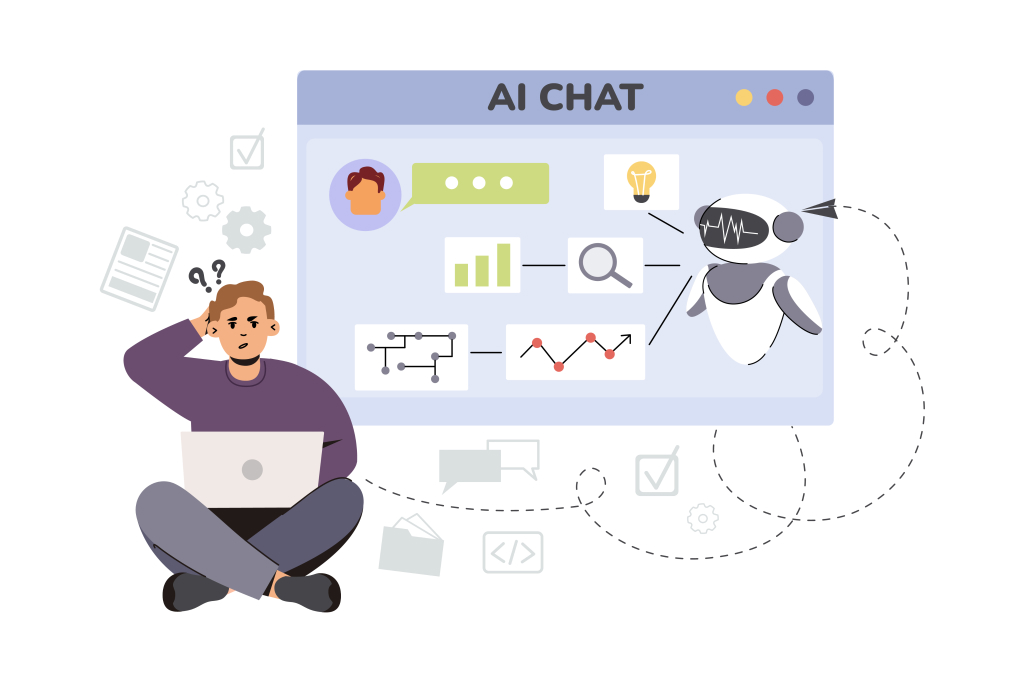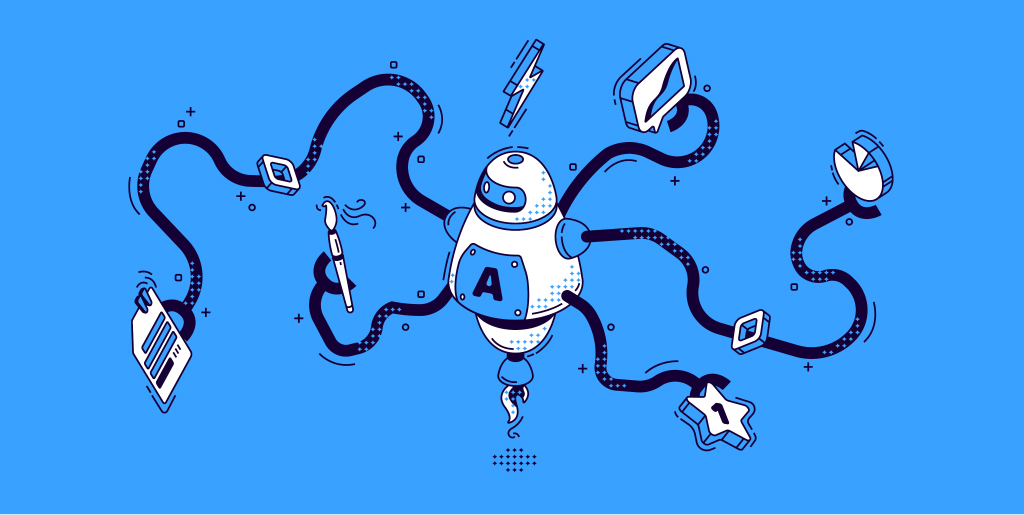
AI and Automation in Content Writing
Introduction to AI and Automation in Content Writing
Definition and Importance of AI in Content Writing
Artificial Intelligence (AI) in content writing is not just a technological trend but an evolutionary step in content creation. By leveraging the computational power of algorithms and predictive analysis, AI makes it possible to create content that's not only accurate and efficient but also tailored to specific audience needs. It's a tool that opens up new horizons for writers, transforming the very concept of content creation from a solely human-driven endeavor into a collaborative process with machines.
Overview of Automation in Content Writing
Automation in content writing is the process by which routine and repetitive tasks are handled by algorithms and AI-powered systems. This kind of automation enables a content writer to focus more on the creative aspects of writing, such as brainstorming ideas and developing unique insights. By handling mundane tasks, automation can significantly boost productivity, ensure consistency across various content pieces, and lead to more robust content strategies.
Intersection of Machine Learning and Natural Language Processing (NLP)
Machine Learning (ML) and Natural Language Processing (NLP) are like the heart and brain of modern content writing systems. ML learns and adapts from data, whereas NLP helps the system understand and respond to human language. Together, they've revolutionized the way content is produced, enabling systems to write with a nuanced understanding of language, tone, and context, offering a human-like touch that's fascinatingly authentic.

Evolution of AI Writing Algorithms and Tools
Historical Perspective of AI Writing Algorithms
From the early days of computer-generated poetry to AI-authored novels, the development of AI writing algorithms has been nothing short of a technological odyssey. Historically, AI writing was more about mimicking human-like responses, but it has now evolved into complex systems that can emulate human creativity, reason, and even emotion. These advancements have led to a golden age of automated content writing, pushing the boundaries of what machines can achieve.
Modern Content Generation Tools
The modern suite of content generation tools is impressive in both diversity and capability. AI writing algorithms are now capable of creating content for various industries, customizing tone and style, and even adapting to specific brand voices. These tools can analyze vast amounts of data, understand audience preferences, and craft content that resonates with readers on a personal level. They're not just tools but intelligent partners in the content creation process.
The Role of AI Writing Bots in Streamlining Processes
AI writing bots are no longer confined to simple chat responses. They're now sophisticated systems that can draft emails, write articles, and even create ad copy. By handling such tasks, these bots enable human writers to focus on more complex and strategic aspects of content writing. The role of AI writing bots in streamlining content creation processes is like having a virtual writing assistant that's always ready to help, learn, and grow.
Deep Dive into AI Writing Algorithms
Structure and Functionality of AI Algorithms
AI writing algorithms are intricate and multifaceted. They combine various aspects of mathematics, linguistics, and computer science to create content that is engaging and relevant. The algorithms analyze patterns, understand nuances of human language, and generate text that is not just grammatically correct but also contextually meaningful. The structure of these algorithms is both a marvel of engineering and a testament to human creativity.
Integrating Machine Learning Models
Integrating Machine Learning models into content writing means creating a system that continually learns and evolves. These models absorb information from various sources, refine their understanding, and apply insights to create content that is increasingly relevant and personalized. It's like nurturing a plant, feeding it with knowledge and insights, and watching it blossom into a full-fledged content-producing system that can adapt to changing trends and reader behaviors.
Examples and Success Stories
Success stories in the realm of AI writing are as varied as they are inspiring. From AI-powered systems that have authored entire books to algorithms that assist in crafting speeches for world leaders, the examples are endless. One notable success is the use of AI in creating content for specialized medical journals, where accuracy and specificity are paramount. These achievements not only showcase the potential of AI in content writing but also set the stage for future innovations.

Applications and Benefits of AI and Automation in Content Writing
Content Scalability through AI and Automation
Content Scalability is one of the most prominent benefits of AI and Automation in content writing. Imagine a single writer crafting thousands of personalized emails or articles within a day! That's the power of scalability that AI brings to the table. By handling various aspects of content creation simultaneously, AI enables businesses to reach larger audiences without compromising on quality or relevance.
AI Content Optimization Techniques
Optimization in content writing is not just about SEO anymore. AI content optimization is about understanding reader behavior, predicting what readers want, and delivering content that aligns with their expectations. Techniques like sentiment analysis, keyword integration, and user engagement tracking are used to craft content that not only ranks well on search engines but also resonates with readers, creating a personalized reading experience.
Enhanced Creativity and Efficiency with Machine Learning
Creativity and efficiency don't often go hand in hand, but Machine Learning in content writing achieves this unique balance. By handling data analysis and routine tasks, ML allows writers to channel their energy into creativity. It's like having a creative assistant that takes care of the logistics so that the artist can focus on the masterpiece. This synergy between human creativity and machine efficiency is reshaping the content creation landscape.
Content Automation Technology in Different Industries
Media and Journalism
In the fast-paced world of media and journalism, content automation technology is like the ever-alert news reporter that never sleeps. Whether it's real-time reporting, analyzing trends, or delivering personalized news feeds, automation ensures that the news reaches readers as quickly as possible, maintaining accuracy and relevance.
Marketing and Advertising
Marketing and Advertising are all about connecting with the audience, and content automation is the bridge that makes this connection stronger. By understanding consumer behavior, preferences, and trends, automated content helps marketers create targeted campaigns that resonate with individual customers. It's not just about selling a product but building a relationship through personalized and engaging content.
Educational and Research Institutions
In education and research, content automation is playing a pivotal role in enhancing learning experiences and facilitating research processes. From creating customized learning materials to summarizing complex research papers, AI-driven content writing is making education more accessible and engaging. It's like having a personalized tutor or research assistant available 24/7, catering to individual needs and promoting a culture of continuous learning.

Challenges and Ethical Considerations
Quality Control and Potential Bias in AI-Generated Content
Quality control and potential bias in AI-generated content are real concerns. Machines learn from data, and if that data contains biases or errors, it can lead to content that misrepresents facts or propagates stereotypes. Ensuring unbiased and high-quality content is akin to guarding the sanctity of human thought and expression, and it requires ongoing vigilance and ethical commitment.
Ethical Implications and Responsible Use
The ethical landscape of AI in content writing is complex and evolving. Questions about authorship, intellectual property rights, transparency, and accountability are still being explored. Ensuring that AI is used responsibly and ethically is not just a legal obligation but a moral duty. It's about preserving the integrity of human intellect and creativity in the face of technological advancements.
The Human Touch vs. Automation in Content Creation
Automation brings efficiency, but the human touch adds soul to content creation. Striking the right balance between the two is a delicate dance. Machines can write, but humans inspire, empathize, and connect. Preserving this balance is essential for content that not only informs but also moves and engages readers. It's about combining the best of both worlds to create content that is truly impactful.
Human Interaction with AI Writing Systems
Collaboration between Writers and AI
The collaboration between writers and AI is not a competition but a partnership. Writers bring intuition, creativity, and human insight, while AI offers data analysis, efficiency, and scalability. Together, they create a content creation process that's more dynamic, personalized, and productive. It's a symbiotic relationship that enhances the strengths of both parties, leading to content that is both art and science.
The Role of Editors in the Age of Automation
Editors in the age of automation are like conductors in an orchestra, ensuring that every note (or word) is in its right place. Automation can draft and optimize content, but the human editor adds the final touch, ensuring that it aligns with the intended voice, tone, and message. The role of editors is evolving, becoming more about guiding and fine-tuning rather than mere correcting, and it's an essential part of maintaining the human essence in content creation.
Blending Creativity with Technology
Blending creativity with technology is like mixing colors on a palette, creating shades and hues that were previously unimaginable. Writers, designers, and artists are finding new ways to express themselves, aided by technology that understands and complements their creative instincts. It's a new frontier of creativity where imagination meets innovation, leading to expressions that are as unique as they are impactful.

The Future of AI and Automation in Content Writing
Predictive Analysis and Personalization through AI
The future of content writing is increasingly personalized, and predictive analysis is the key to achieving this personalization. AI systems will not only understand what readers want today but predict what they'll want tomorrow. It's like having a crystal ball that guides content strategy, ensuring that content stays relevant, engaging, and ahead of the curve.
Upcoming Trends in Content Automation Technology
The trends in content automation technology are as exciting as they are transformative. From voice-activated content creation to AI-driven storytelling, the future holds possibilities that are yet to be explored. These trends are shaping a new era of content creation where technology doesn't just assist but inspires, leading to content that is not only efficient but emotionally resonant.
Impact on Jobs and the Evolving Role of Human Writers
The fear that AI will replace human writers is unfounded. Instead, it's redefining roles, enhancing creativity, and creating new opportunities. Human writers in the age of AI are like pilots in a technologically advanced aircraft. The technology assists, but the human is in control, steering creativity towards new horizons, exploring uncharted territories of expression and connection.
Conclusion
Summary of Key Takeaways
The integration of AI and Automation in content writing is a journey of innovation, collaboration, and transformation. It's about leveraging the best of technology and human creativity to create content that speaks to the human condition in a world that's increasingly driven by data.
The Current State and Future Outlook
The current state of AI in content writing is robust, dynamic, and promising, but the future holds even more potential. From AI systems that can write novels to algorithms that can craft poetry, the possibilities are limitless. The future of content writing is not just about words but about creating connections, experiences, and insights that enrich our lives.
Final Thoughts on the Integration of AI and Automation in Content Writing
AI and Automation in content writing are not just tools or trends but a paradigm shift. They challenge the traditional boundaries of creativity, inspire new ways of thinking, and open doors to possibilities that were previously unimaginable. It's a brave new world of content creation, and it's as exciting as it is transformative.
References
List of Popular Content Generation Tools:
- GPT-4: A New Dawn in Content Generation – A comprehensive overview of the OpenAI GPT-4 model and its applications in content writing. Available at: OpenAI Blog
- ContentBot: Your AI Writing Assistant – An in-depth review and tutorial of ContentBot, a popular AI-powered content generation tool. Available at: ContentBot Website
- The AI Writing Tools Landscape in 2023 – A research paper detailing the various AI writing tools available in the market, their functionalities, and comparisons. Available at: AI Writing Research Portal
Case Studies on AI Content Optimization:
- Improving SEO with AI: A Case Study – An illustrative case study on how AI can be utilized for SEO and content optimization, with real-world examples. Available at: SEO AI Research Journal
- Personalized Content through Machine Learning: A Brand Success Story – A detailed analysis of how a leading brand leveraged machine learning for content personalization. Available at: Marketing AI Institute
- The Future of Content Marketing: AI-Powered Analytics and Optimization – An insightful report on the application of AI in content marketing, with relevant case studies and examples. Available at: Content Marketing Institute
Glossary of Terms Related to AI, Automation, Machine Learning, and NLP:
- Glossary of Machine Learning and AI Terms – A comprehensive glossary that explains key terms and concepts related to machine learning and AI. Available at: MIT Machine Learning Glossary
- Natural Language Processing (NLP) Explained – An in-depth resource that provides definitions, explanations, and examples of NLP concepts. Available at: Stanford NLP Group
- Automation in Content Creation: A Beginner's Guide – A handy guide that covers automation in content creation, with a glossary of related terms and concepts. Available at: Automation Insights Blog
These resources provide comprehensive insights into the different aspects mentioned in the references section, catering to readers with varying levels of expertise and interest in the subject matter.
 Mark Petrenko
Mark Petrenko 
